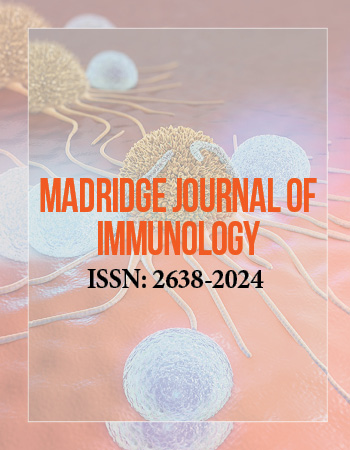International Conference on Immunology and Immunotechnology
November 1-3, 2017 Barcelona, Spain
Ser14-Phosphorylated WWOX Induces T, B and NK Cell Expansion whereas Dephosphorylated WWOX Activates Z Cell to Suppress Cancer Growth
Laboratory of Molecular Immunology, Institute of Molecular Medicine, National Cheng Kung University, College of Medicine, Taiwan
Forced maturation of leukemia T cells requires up regulation of Ser14 phosphorylation of WWOX and the WWOX/ERK/IκBα signaling. WWOX is generally regarded as a tumor suppressor. Here, we showed that synthetic pSer14-WWOX7-21 peptide significantly induced the expansion of CD3+, CD4+, CD8a+, and CD8b+ T and CD19+ B cells in the spleens of immune-competent BALB/c mice bearing with melanoma. Despite immune cell expansion, no cancer growth suppression was observed. Notably, restoration of immune cells occurred in naive immunodeficient NOD-SCID mice during prolonged treatment with pSer14-WWOX7-21. In stark contrast, non-phosphorylated WWOX7-21 and WWOX7-11 peptides caused spleen Hyal-2+ CD3- CD19- or Z cells to undergo clonal expansion for blocking melanoma growth and metastasis and breast cancer growth. Both peptides induced the expression of spleen Z cells with up regulation of Hyal-2, Zfra, Noxa, Fam46A and Ademdec1 expression. Stimulation of mice with Hyal-2 antibody or sonicatedhyaluronan (HAson) activated Z cells to suppress cancer growth in vivo. In contrast, native hyaluronan (HAn) had no inhibitory effect. Time-lapse microscopy showed that activated Z cells aggressively bound and caused explosion of breast 4T1 cancer cells in vitro. In addition, WWOX7-21 enhanced ceritinib or U0126/protease inhibitor cocktailinduced 4T1 stem cell sphere explosion, whereas pSer14-WWOX7-21 protected the cells from death. Together, our observations suggest that pSer14-WWOX supports T and B cell expansion, whereas de-phosphorylated WWOX blocks cancer growth via induction of Z cells or direct assistance of therapeutic chemicals. Ser14 phosphorylation probably switches WWOX from a tumor suppressor to promoter.
Biography:
Dr. Nan-Shan Chang is currently the Distinguished Professor of the Molecular Medicine Institute, National Cheng Kung University (NCKU) in Taiwan, and the Adjunct Professor with the SUNY Upstate Medical University and the NYS Institute for Basic Research in Developmental Disabilities, New York. He is most noted for his discovery of tumor suppressor WWOX in 2000. Recent Awards: Breast cancer and neurofibromatosis research awards from the Department of Defense, USA, in 2008 and 2010; Distinguished Professor Award 2010, 2013, 2016 from NCKU; Distinguished Scientist Award 2011 from the Society of Experimental Biology & Medicine, USA.


